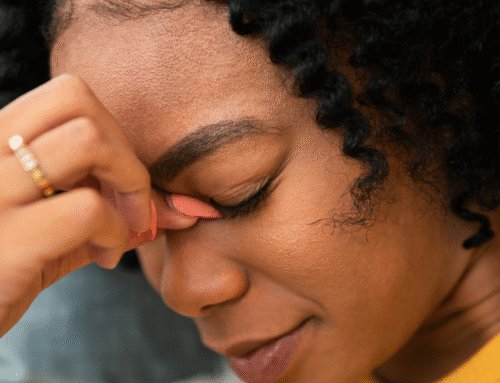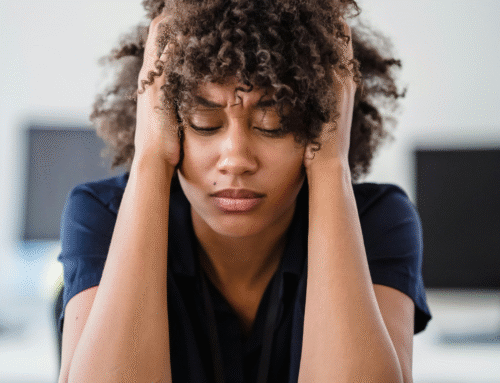How Traditional Chinese Medicine Supports Emotional and Psychological Well-Being
In a world where stress, anxiety, burnout, and depression have become common language in everyday life, it’s no surprise that more people are seeking holistic approaches to mental health. While therapy, medication, and lifestyle changes all play important roles, one method gaining increasing attention for its subtle yet powerful effects is acupuncture.
Rooted in the wisdom of Traditional Chinese Medicine (TCM), acupuncture doesn’t just treat physical ailments—it addresses the emotional, energetic, and spiritual aspects of health as well. In fact, TCM has long understood what modern science is only beginning to confirm: that mental health is deeply intertwined with the health of the body and its internal energy systems.
Let’s explore how acupuncture supports emotional wellness and why more people are turning to this ancient practice for modern peace of mind.
Mental Health in the Language of Chinese Medicine
In TCM, mental and emotional well-being are not separate from physical health. Instead, they are seen as reflections of internal balance—particularly the balance of Qi (vital energy), Blood, and the harmony between the Zang-Fu organs (internal organ systems).
Each organ system is associated not just with a physical function, but also with an emotion:
-
Liver – Anger, frustration, irritability
-
Heart – Joy, overexcitement, restlessness
-
Spleen – Worry, overthinking
-
Lungs – Grief, sadness
-
Kidneys – Fear, insecurity
When these organs are out of balance, emotional symptoms often appear. For example, someone with Liver Qi stagnation might feel irritable and tense; a person with Heart Yin deficiency may experience insomnia and anxiety.
Acupuncture works to regulate the flow of Qi, clear stagnation, and strengthen deficiencies—restoring emotional equilibrium in a way that’s both profound and deeply calming.
How Acupuncture Affects the Nervous System
Beyond its energetic explanation, acupuncture also influences the nervous system and brain chemistry in ways that directly impact mental health.
Modern research shows that acupuncture can:
-
Stimulate the parasympathetic nervous system (rest and digest)
-
Lower cortisol levels (the stress hormone)
-
Release endorphins and serotonin, the body’s natural mood enhancers
-
Improve sleep quality and regulate circadian rhythms
-
Reduce inflammation, which is increasingly linked to anxiety and depression
This means that even a single acupuncture session can create a sense of calm, relaxation, and clarity—while consistent treatment over time helps rewire stress patterns, balance emotions, and enhance resilience.
Acupuncture for Common Mental Health Concerns
1. Anxiety and Panic Attacks
Acupuncture is highly effective in calming the nervous system and helping the body process adrenaline and emotional overwhelm. Points such as Yin Tang (between the brows) and Heart 7 (Shenmen) are known for quieting the mind and grounding the spirit.
2. Depression and Low Mood
From a TCM standpoint, depression may stem from stagnation of Liver Qi, deficiency of Heart Blood, or dampness obstructing the mind. Acupuncture addresses these root imbalances, often helping patients feel lighter, more hopeful, and connected.
3. Insomnia
Many sleep issues are rooted in emotional unrest or energetic imbalances (like Heart Yin deficiency or Liver Fire). Acupuncture improves sleep quality by helping the Shen (spirit) return to its resting place in the Heart.
4. Burnout and Fatigue
Chronic stress depletes Kidney Yin and Qi, leading to exhaustion, brain fog, and even physical pain. Acupuncture can restore depleted energy reserves and encourage recovery—body, mind, and spirit.
5. PTSD and Emotional Trauma
For those with emotional trauma, acupuncture offers a non-verbal pathway to healing. By calming the body’s physiological responses to fear and triggering a state of safety and restoration, it can be an incredible ally in trauma recovery—especially when used alongside therapy or other forms of support.
The Spirit in Chinese Medicine: Honoring the Shen
At the heart of TCM’s approach to mental health is the concept of Shen, often translated as “spirit” or “mind.” The Shen resides in the Heart and governs consciousness, emotions, sleep, and mental clarity.
When the Shen is disturbed—by trauma, stress, illness, or imbalance—people may experience symptoms such as anxiety, restlessness, insomnia, or confusion. Acupuncture helps anchor the Shen, creating a sense of internal stillness and emotional safety.
This spiritual dimension is one of the reasons many patients say they feel not just “better” after acupuncture—but more whole, grounded, and themselves.
A Gentle Complement to Other Therapies
Acupuncture works beautifully alongside other forms of mental health care—whether that’s talk therapy, medication, or mindfulness practices. In fact, many patients find that acupuncture enhances their emotional processing, supports clarity, and makes them more receptive to change.
Because it’s low-risk, non-invasive, and deeply restorative, acupuncture is also an excellent option for people who want to explore alternatives to medication or reduce their reliance on it under medical supervision.
Final Thoughts: A Path Toward Emotional Balance
In an era where we are constantly stimulated, overconnected, and often overwhelmed, acupuncture offers something rare and healing: stillness, connection, and integration.
By addressing both the physiological and energetic roots of emotional distress, acupuncture provides a safe, compassionate, and effective way to support mental health. Whether you’re navigating anxiety, depression, grief, or burnout, Chinese Medicine has the tools to help bring you back into balance—one breath, one needle, one step at a time.







Leave A Comment